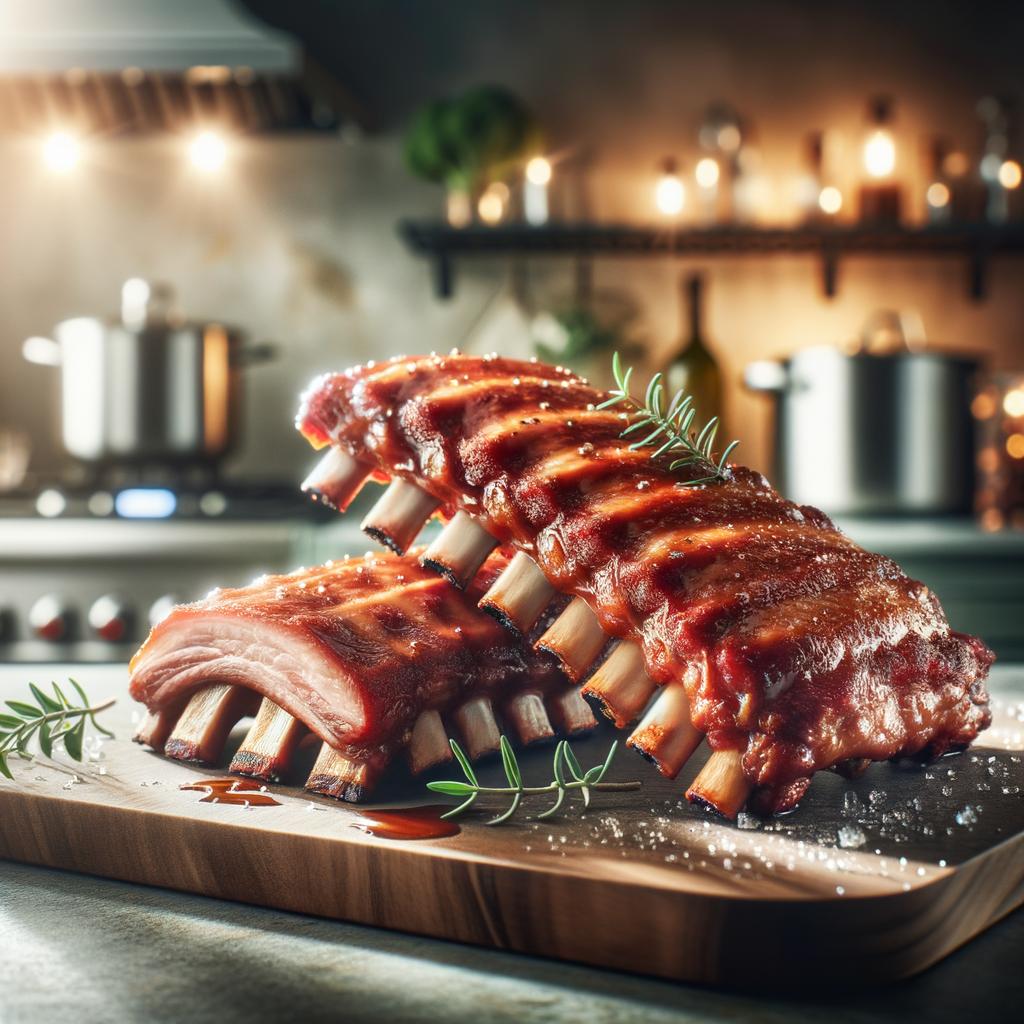Pork Spare Ribs

Description
Pork spare ribs, a beloved ingredient in many cuisines, are the long, flat cuts of rib meat found in the belly side of the pig's rib cage. They are distinguishable by their rectangular shape and bone-in structure, with each rib bone accompanied by a generous portion of meat and fat. The meat is tender, moist, and incredibly flavorful, offering a luscious combination of sweet, savory, and umami flavors. The unique characteristic of pork spare ribs is the layer of fat that marbles the meat, which when cooked, melts and imbues the meat with an irresistible succulence and rich flavor.
Primary Uses
Pork spare ribs are a versatile ingredient, enjoyed in various forms across different cuisines. In American barbecue, they are slow-cooked to perfection, slathered with a tangy-sweet barbecue sauce, and served with classic sides like coleslaw or cornbread. In Chinese cuisine, they are often marinated in a mix of soy sauce, sugar, and spices, then steamed or braised. In Korean cuisine, they form the heart of the popular dish Galbi, where they are marinated in a sweet and savory sauce before being grilled. Beyond culinary uses, pork spare ribs also have cultural significance, especially in Southern American cuisine, where they are a staple at family gatherings and community celebrations.
History
The history of pork spare ribs is as rich and satisfying as the dish itself. They have been a part of human diet for centuries, with archaeological evidence of pig domestication dating back to 5000 BC. In America, the tradition of barbecuing ribs began in the South, influenced by Native American smoking methods. Over time, regional variations developed, each with its own unique flavor profiles and cooking techniques. In Asia, the use of spare ribs in traditional dishes like Chinese dim sum or Korean Galbi has deep historical roots, reflecting the resourcefulness of these cultures in using every part of the animal. There's an old saying in the South: "The closer the bone, the sweeter the meat," and indeed, many rib-lovers swear by this, adding to the romantic allure of this ingredient.
Nutritional Information
Pork spare ribs are a good source of protein, essential for muscle growth and repair. They also provide important vitamins and minerals, including vitamin B12, zinc, and selenium. However, due to the high fat content, they are also high in calories and saturated fats. Compared to leaner cuts of pork, spare ribs have a higher fat content, which contributes to their rich flavor and tender texture. While they can be part of a balanced diet, moderation is key to enjoy this delicious ingredient healthily.

